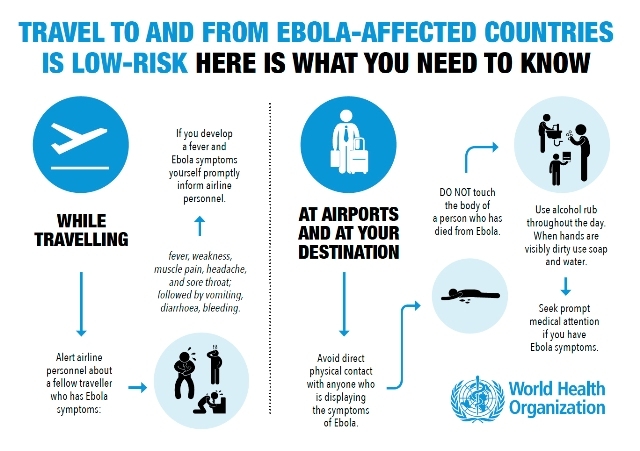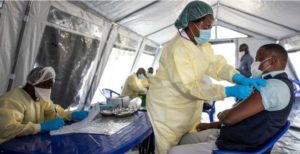International organizations call for global efforts to control Ebola

Madrid, Spain : Six international organizations – WHO, ICAO, UNWTO, ACI, IATA and WTTC have called for global integrated efforts to control Ebola virus disease and provide a coordinated international response for the travel and tourism sector.
WHO declared the Ebola virus disease outbreak in West Africa a Public Health Emergency of International Concern (PHEIC) in accordance with the International Health Regulations (2005)on 8 August 2014.
The current Ebola virus disease (EVD) outbreak is believed to have begun in Guinea in December 2013. This outbreak now involves community transmission in Guinea, Liberia and Sierra Leone and recently an ill traveller from Liberia infected a small number of people in Nigeria with whom he had direct contact.
In a joint statement on travel and transport of Ebola virus disease (EVD) outbreak,the heads of the World Health Organization (WHO), the International Civil Aviation Organization (ICAO), the World Tourism Organization (UNWTO), Airports Council International (ACI), International Air Transport Association (IATA) and the World Travel and Tourism Council (WTTC) decided to activate a Travel and Transport Task Force to monitor the situation and provide timely information to the travel and tourism sector as well as to travellers.
” The risk of transmission of Ebola virus disease during air travel is low. Unlike infections such as influenza or tuberculosis, Ebola is not spread by breathing air (and the airborne particles it contains) from an infected person. Transmission requires direct contact with blood, secretions, organs or other body fluids of infected living or dead persons or animals, all unlikely exposures for the average traveller. Travellers are, in any event, advised to avoid all such contacts and routinely practice careful hygiene, like hand washing.”
The risk of getting infected on an aircraft is also small as sick persons usually feel so unwell that they cannot travel and infection requires direct contact with the body fluids of the infected person.
‘ It is important to note that a person who is infected is only able to spread the virus to others after the infected person has started to have symptoms. A person usually has no symptoms for two to 21 days (the “incubation period”). Symptoms include fever, weakness, muscle pain, headache and sore throat. This is followed by vomiting, diarrhoea, rash, and in some cases, bleeding .’
According to the statement ,the risk of a traveller becoming infected with the Ebola virus during a visit to the affected countries and developing disease after returning is very low, even if the visit includes travel to areas in which cases have been reported.
“Strengthened international cooperation is needed, and should support action to contain the virus, stop transmission to other countries and mitigate the effects in those affected.”
WHO does not recommend any ban on international travel or trade, in accordance with advice from the WHO Ebola Emergency Committee.
Travel restrictions and active screening of passengers on arrival at sea ports, airports or ground crossings in non-affected countries that do not share borders with affected countries are not currently recommended by WHO.
Worldwide, countries should provide their citizens traveling to Ebola-affected countries with accurate and relevant information on the Ebola outbreak and measures to reduce the risk of exposure, the statement adds.
August 22, 2014














